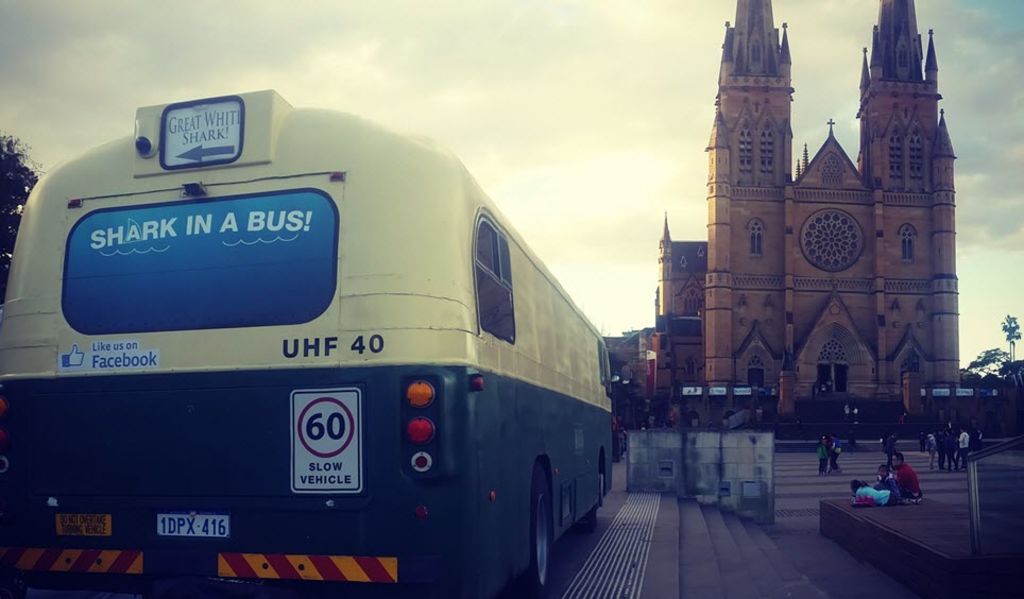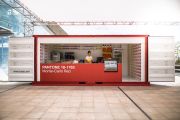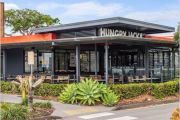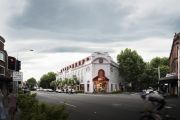
Deals on wheels: The rise of mobile businesses in Australia
With the price of rent skyrocketing in many Australian cities, small businesses have followed in the tyre tracks of food trucks and taken their offerings on the road.
Once just the domain of the hospitality industry, everything from dog grooming to wigs are now available on wheels in Australia.
The price of commercial rent in capital cities across Australia is ever growing, and the novelty and popularity of being able to move your business on a whim has proved increasingly popular in Australia.
Western Australia local Paul Sharp has witnessed this trend first hand. He got on board early, launching Shark in a Bus – a maritime museum on wheels – about five years ago.
Shark in a Bus features an array of whale skulls, fossils and “Frankie”, a perfectly preserved five-metre-long Great White shark, all housed in the 1957 Leyland Royal Tiger bus that travels around the country.
The exhibition is mainly the Sharp family’s personal collection dating back to the 1970s, and was previously featured in a traditional museum.
Now the collection is on wheels and has travelled around the country, with Mr Sharp working with local councils to find a suitable location.
“We’ll go wherever there’s room and people,” Sharp says.
“We’re the last shark museum standing in Australia and the only one that ever exhibited with a focus on education and conservation.”
While moving the exhibition to a permanent home is “always on the card”, he says that the exorbitant cost of rent in most capital cities means it just makes sense to keep running the business from the bus.
Entry is free when they have support from a local council; otherwise they charge a small entry fee.
“We’re not in a position now where we could find affordable rent, we would need to find some kind of partnership with a local council,” Mr Sharp said.
Having operated for five years, Mr Sharp has seen the drastic increase in Australian small businesses ditching a bricks-and-mortar location in favour of the cheapness and convenience of a van or bus.
“It’s been quite interesting to see, and I certainly take notice of it. It’s really interesting to see what people come up with,” he said.
In Sydney the Barber Van regularly sets up shop in different locations around the city, cutting about 40 people’s hair each day. With just a timetable on its website letting people know where it’ll be, the business also works with councils to get the necessary permits to operate in a certain spot.
Barber Van founder Ed Weatherhead had previously operated a traditional, fixed-site salon before shutting down to focus entirely on the van.
Sydney-based massage company 3 Minute Angels is also planning to take to the streets, having run a crowdfunding campaign for the Divine Truck, with founder Andrew Ward saying that the truck would cost half of what just the bond on a lease of real estate in the city would.
The growing trend has also seen dentists, wig specialists and coffee makers ditch a location for a mobile operation.
Running a mobile business comes with its own distinct advantages and disadvantages.
It makes it easier to follow the customers and set up in a popular location each day – Shark in a Bus has made the likes of Manly Beach, in Sydney, and Cottesloe, in Perth, its home.
“Being mobile opens up a lot of fantastic locations,” Mr Sharp said.
For Wigs on Wheels, it also allows customers a sense of privacy that’s needed with these type of businesses.
But it also comes with a range of challenges, including difficulties in marketing, especially with an inability to be listed of review platforms like TripAdvisor, which require a business to list a fixed location.
“We’re one of Australia’s best attractions but no-one can find us and review us. Because we don’t have a permanent bricks-and-mortar location TripAdvisor won’t give us a listing,” Mr Sharp said.
“I’m hoping that they’ll change their policies because mobile businesses are valid attractions and they’re things that can make a business very exciting. TripAdvisor would be doing a great service to start supporting these sort of things.”
Get a weekly roundup of the latest news from Commercial Real Estate, delivered straight to your inbox!








